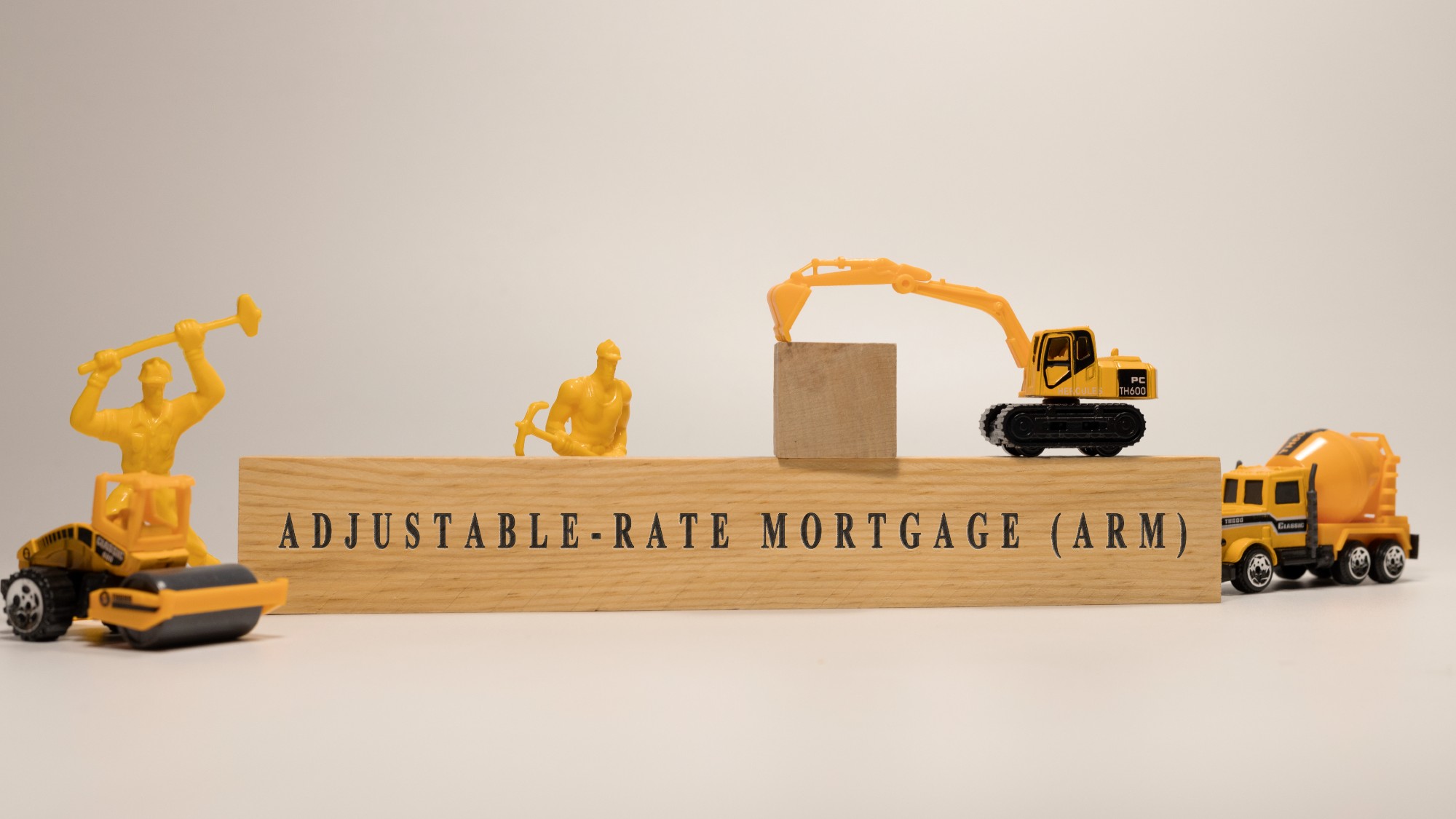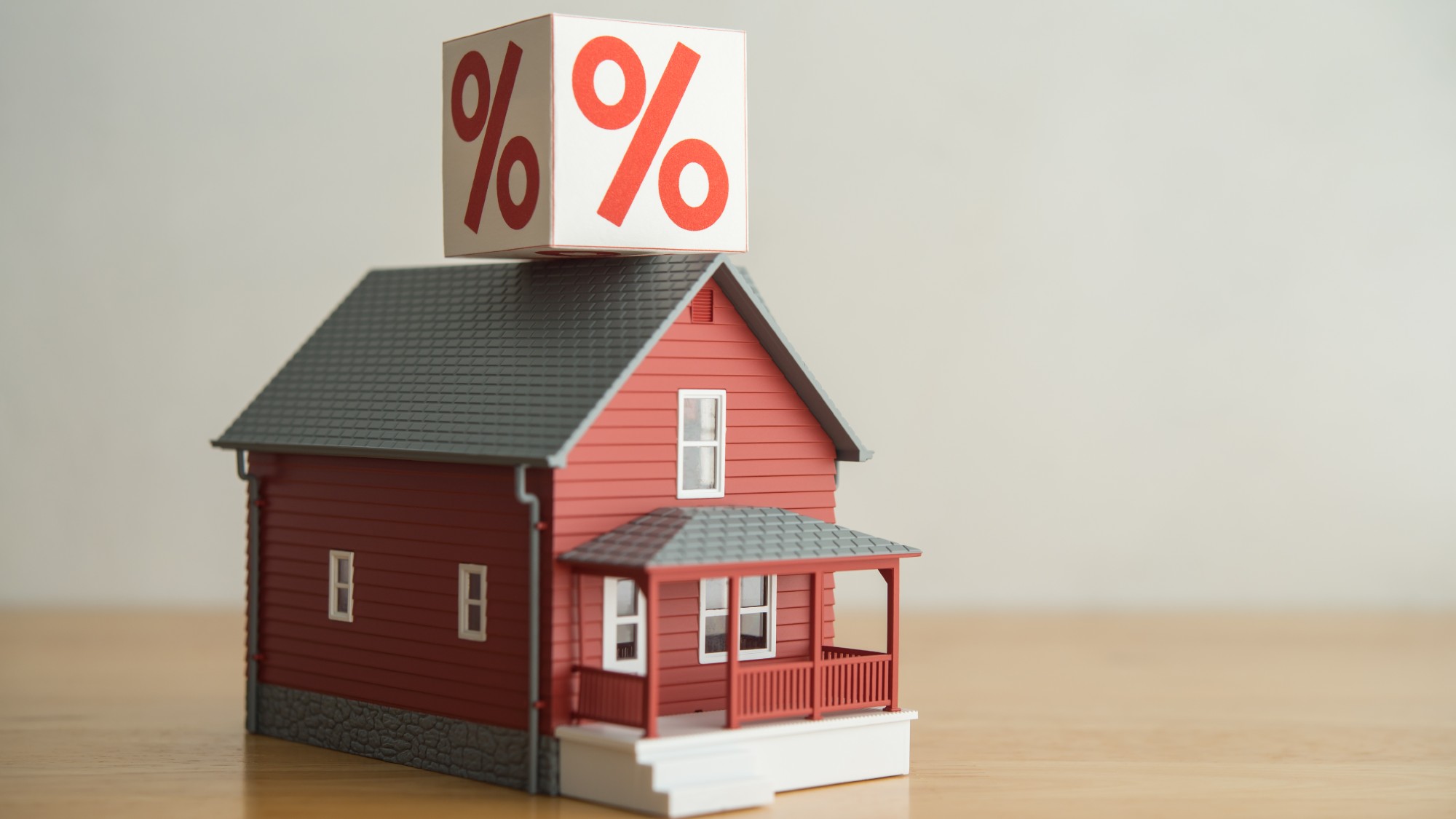Pros and cons of overpaying your mortgage
You can become mortgage-free sooner through overpayments, but there are potential downsides to consider

A free daily email with the biggest news stories of the day – and the best features from TheWeek.com
You are now subscribed
Your newsletter sign-up was successful

As major lenders hike mortgage rates yet again, many homeowners may be ruling out making voluntary extra payments on their home loans.
But overpaying on your mortgage if you can afford to can “save you money in the long run”, said MoneySuperMarket. You’ll pay less interest overall, “since you’ll clear your debt quicker”. And if you need to remortgage, you may be able to secure a better rate – which could be more important than ever.
The Bank of England is expected to raise rates to a 15-year high of at least 4.75% next week, and markets are betting on rates “settling closer” to 6% than 5% by the end of the year, said the BBC's Faisal Islam. Recent hikes have already triggered a “deluge of mortgage repricing" among major lenders.
The Week
Escape your echo chamber. Get the facts behind the news, plus analysis from multiple perspectives.

Sign up for The Week's Free Newsletters
From our morning news briefing to a weekly Good News Newsletter, get the best of The Week delivered directly to your inbox.
From our morning news briefing to a weekly Good News Newsletter, get the best of The Week delivered directly to your inbox.
HSBC and Santander are already withdrawing deals and raising rates, which have surged by 0.5% for some fixed-rate home loans in the past few weeks alone. You may not feel the impact of interest rate rises yet if you are already on a fixed deal, said MoneyHelper, but it may be worth “taking advantage of the low rate you’re currently enjoying” by making overpayments.
Overpaying may not be for everyone though, and there are various pros and cons to consider.
1. Pro: pay off mortgage sooner
Borrowers can usually make a lump sum overpayment, add to their monthly payments, or do both. By overpaying, you will “pay off more of the money you originally borrowed quicker than you first calculated”, said NerdWallet, meaning you clear your mortgage sooner. For example, if you owe £100,000 on a mortgage with a 20-year term and an interest rate of 3%, paying an extra £200 as a regular monthly payment could save you £11,596 in interest over the lifetime of the loan and cut the term by six years and seven months.
2. Con: other debts could mount up
It may be tempting to be mortgage-free as fast as you can, but a “crucial rule of debt repayments” is to clear high-interest credit cards and loans before overpaying your mortgage, said MoneySavingExpert. Interest on these products is usually more expensive and you can end up in deeper debt if you fall behind on repayments.
A free daily email with the biggest news stories of the day – and the best features from TheWeek.com
3. Pro: better returns than savings
With most savings rates still below inflation, “the money you save on mortgage interest often beats the returns you would get from putting the cash in a savings account”, said The Times Money Mentor.
According to Confused.com, if your mortgage interest rate is higher than your savings interest rate, you should “consider making the overpayment” as it could be a better use of your spare cash. For example, £5,000 in a savings account with 1% interest would earn £50 in a year. But if you had £5,000 left on a mortgage with a 3% rate, you would pay £82 interest. In this case, overpaying is worth it, as “the interest you’d get from savings would be less than the savings you’d make by not having to pay the interest on your mortgage”.
4. Con: can’t get that money back
When you put cash into a savings account, you can access it if and when you need. That’s not the case when you put money towards your mortgage. Make sure you don’t “drain any emergency savings you have” for things such as fixing a broken boiler or funding expensive car repairs, said Go.Compare. The comparison website recommended trying to keep enough set aside to cover six months’ essential expenses.
You could also be missing out on returns if money spent on overpayments were invested instead, especially if you are young and have time to build a nest-egg, warned Michael Taylor in the Financial Times. If you overpay a mortgage with a rate of 5%, you save five pence for every £1 you overpay. But if you invest that money in assets, “it’s not unlikely you could earn more than 5% over the long run”, said Taylor.
5. Pro: better remortgage deal options
Overpaying will “chip away much more quickly at what is owed and could help you qualify for a lower loan-to-value deal when your fixed rate ends”, said ThisisMoney.co.uk. The lower your LTV, the lower the interest rates you can access. “So overpaying on your mortgage could mean that you get an even cheaper deal when you come to remortgage,” said Unbiased.
6. Con: early repayment charges
Lenders typically have limits on how much you can overpay each year – usually up to 10% of the value of your loan, although NatWest currently allows overpayments of up to 20%. Most fixed-rate and discounted mortgages also have penalties, known as early repayment charges (ERC), which kick in if you pay the loan off before the end of the term. This “would easily wipe out any interest savings”, said MoneyWeek.
However, in some cases, it may be worth paying the fee in order to move to a mortgage that saves you money in the long term by locking in a rate now before costs potentially rise further.
Marc Shoffman is an award-winning freelance journalist, specialising in business, property and personal finance. He has a master’s degree in financial journalism from City University and has previously worked for the FT’s Financial Adviser, the financial podcast In For a Penny and MoneyWeek.
Marc Shoffman is an NCTJ-qualified award-winning freelance journalist, specialising in business, property and personal finance. He has a BA in multimedia journalism from Bournemouth University and a master’s in financial journalism from City University, London. His career began at FT Business trade publication Financial Adviser, during the 2008 banking crash. In 2013, he moved to MailOnline’s personal finance section This is Money, where he covered topics ranging from mortgages and pensions to investments and even a bit of Bitcoin. Since going freelance in 2016, his work has appeared in MoneyWeek, The Times, The Mail on Sunday and on the i news site.
-
 Political cartoons for February 12
Political cartoons for February 12Cartoons Thursday's political cartoons include a Pam Bondi performance, Ghislaine Maxwell on tour, and ICE detention facilities
-
 Arcadia: Tom Stoppard’s ‘masterpiece’ makes a ‘triumphant’ return
Arcadia: Tom Stoppard’s ‘masterpiece’ makes a ‘triumphant’ returnThe Week Recommends Carrie Cracknell’s revival at the Old Vic ‘grips like a thriller’
-
 My Father’s Shadow: a ‘magically nimble’ film
My Father’s Shadow: a ‘magically nimble’ filmThe Week Recommends Akinola Davies Jr’s touching and ‘tender’ tale of two brothers in 1990s Nigeria
-
 Six ways to boost your finances in 2026
Six ways to boost your finances in 2026The Explainer It’s not too late to make a new year’s resolution to finally get organised money-wise
-
 Could a part-and-part mortgage help you on to the property ladder?
Could a part-and-part mortgage help you on to the property ladder?The Explainer Combining repayment and interest-only mortgages could become more popular as part of a push towards more flexible lending
-
 Why it’s important to shop around for a mortgage and what to look for
Why it’s important to shop around for a mortgage and what to look forThe Explainer You can save big by comparing different mortgage offers
-
 What are portable mortgages and how do they work?
What are portable mortgages and how do they work?the explainer Homeowners can transfer their old rates to a new property in the UK and Canada. The Trump administration is considering making it possible in the US.
-
 What’s an adjustable-rate mortgage and what are the risks?
What’s an adjustable-rate mortgage and what are the risks?The Explainer Buyers are increasingly willing to take the gamble of a changing rate
-
 How will Fed rate cuts affect the housing market?
How will Fed rate cuts affect the housing market?the explainer An anticipated series of Federal Reserve cuts could impact mortgage rates
-
 What's a bridge loan and how could it make buying your next home possible?
What's a bridge loan and how could it make buying your next home possible?The Explainer This type of loan has both pros and cons
-
 Housing costs: Is deregulation the answer?
Housing costs: Is deregulation the answer?Feature Washington, D.C.’s NoMa neighborhood is now leading the nation in new apartment construction